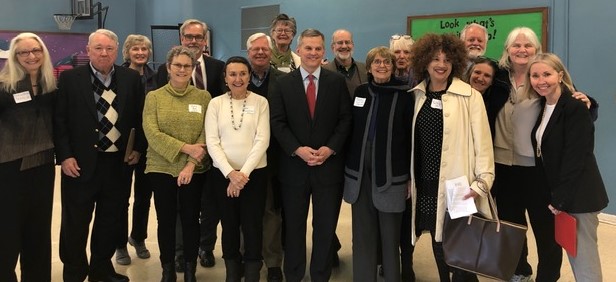Inside Appalachia is a production of West Virginia Public Broadcasting. Listen to the full episode below.
For many families in parts of eastern Kentucky and southern West Virginia, the absence of clean, reliable drinking water has become part of daily life.
In this episode of the podcast Inside Appalachia, we hear from folks like Blaine Taylor, a 17-year-old resident of Martin County, Kentucky, who struggles to manage basic hygiene when his water comes out with sediment in it.
“I had to use a case of water last night just to get enough water in my bathtub just to get myself cleaned up for today at school,” he said. “It’s rough.”
In 2015, Inside Appalachia reported that water districts in the central part of the region struggle to perform routine maintenance, which leads to quality and reliability problems for customers. Sometimes, districts are understaffed and underfunded. The repairs they do make are often inadequate — and fail to address the long-term problems of water loss and crumbling service lines.
West Virginia Public Broadcasting reporter Molly Born, Caity Coyne, from the Charleston Gazette-Mail, and Will Wright, from the Lexington Herald-Leader, spent part of 2018 looking into this issue for a project called Stirring the Waters. They were working through the Report for America initiative, a national service program made possible in rural Appalachia with support from the Galloway Family Foundation.
They discovered West Virginia would need $17 billion to connect hundreds of systems across the state to centralized utility services — both water and sewer. That’s according to the West Virginia Infrastructure and Jobs Development Council. The council is responsible for approving and overseeing infrastructure projects in the state.
That $17 billion is more than the entire 2018 state budget, about four times more.
By the end of 2017, only $8.5 million dollars were secured for the projects — just more than 1 percent of the necessary funds.
In this episode, we also follow a group of graduate students from the University of Pennsylvania, who recently toured water plants in McDowell County hoping to help find a solution to the problem.
This story was originally published by West Virginia Public Broadcasting and was produced in collaboration with Report for America corps members Caity Coyne and Will Wright, and former corps member Molly Born, as well as the Charleston Gazette-Mail, Lexington Herald-Leader and GroundTruth staff members as part of their Stirring the Water series. Read the full series here.



